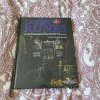- Joined
- May 15, 2017
- Messages
- 7,593
- Reaction score
- 19,556
I can't say I've been aware of that misconception. It's not what I've found off-putting about ToC's rules.
If you leave out the meta currency will the game still work? Is there anything else unique about it? I've only read the books for the setting/mythos interpretations and scenarios...
i am no expert, but I would say no. it's a simple mechanic, if you look at it crossways it reminds me of Numenera with it's pool expenditures. You never really roll against investigative abilities, you spend out of the pool for extra information. General skills are spent on rolls, adding one per point spent. they refresh every so often.
I think the important thing is how to treat investigations and how to think about them.






 !
! Yeah, I’m half joking, but only half. Are you really looking for that extreme of a literary replication? Sounds like if no James story included a Webley revolver, a game would have to have an equipment list without one (or have no lists at all if no one ever bought anything) to be suitable.
Yeah, I’m half joking, but only half. Are you really looking for that extreme of a literary replication? Sounds like if no James story included a Webley revolver, a game would have to have an equipment list without one (or have no lists at all if no one ever bought anything) to be suitable.